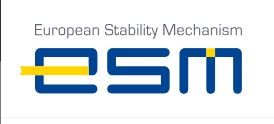(BRUSSELS) – The European Parliament voted Thursday on measures specifying how large online platforms such as Amazon and Ebay are to contribute to closing existing loopholes that currently hinder the collection of VAT.
The new rules, led through the Parliament by rapporteur Ondrej Kovarík MEP, would help EU Member States recover around 5 billion in tax revenues lost in the e-commerce sector every year – a figure expected to rise to 7 billion by 2020. In 2017, unpaid VAT due from all economic sectors in the EU was calculated to stand at around 137 billion.
The directive supplements general provisions laid down in the VAT e-commerce directive, approved in 2017 and due to enter into force in 2021. It details how online platforms such as the marketplaces of Amazon, E-Bay or Alibaba are to execute the responsibility they will have from 2021 to ensure that VAT is collected on sales to EU consumers.
Notably, the rules detail the records that platforms must keep on the sales made to help national authorities calculate how much VAT is due, even when sellers from outside the EU have not complied with paying the VAT. Currently, it is difficult for member states to obtain the VAT due on goods sold from outside the EU if the seller does not properly declare these sales.
MEPs have agreed on the changes to the Commission proposal put forward by Member States to clarify which Member State will be administratively competent for a specific sale, and when an online platform is to be considered as having a role in a sale, and therefore ultimately responsible for ensuring the VAT is collected. MEPs also agreed that the reporting requirements should be supplemented to obtain a breakdown of the VAT due per member state.
“We need a VAT Regime which is fit for the digital age,” said Mr Kovarík: “Modernising the e-commerce rules will simplify VAT procedures across the single market. This Directive will also contribute to closing existing loopholes that hinder VAT collection.”
The new measures are expected to be of particular benefit to smaller enterprises which aim to do business across the EU.
The EU Council will now need to adopt the final position on this directive. The European Parliament has a consultative role.
Further information, European Parliament








